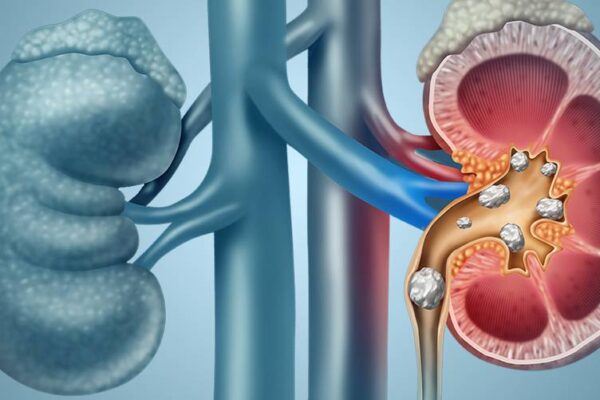
16 Dec What is the Best Treatment for Pericarditis?
What is the Best Treatment for Pericarditis?
By Island Hospital | December 16, 2024 12:00:00 PM
Pericarditis can cause sharp chest pain and other uncomfortable symptoms. While the condition is often mild and resolves on its own, some cases require medical treatment to prevent complications and manage discomfort.
In this article, we’ll explore various treatments for pericarditis, from anti-inflammatory medications to lifestyle adjustments, and discuss when to seek professional care.
Whether you’re dealing with an acute or chronic form of pericarditis, understanding your treatment options is key to a faster recovery and a better quality of life.
What is Pericarditis?
Pericarditis is the inflammation of the pericardium, the thin, protective sac surrounding the heart. This condition can cause sharp, stabbing chest pain, often mistaken for a heart attack.
Pericarditis may be triggered by infections, autoimmune disorders, injury, or even heart surgery. In many cases, the inflammation is mild and resolves within a few weeks.
However, more severe or chronic cases may require long-term care and can lead to complications if untreated.
Diagnosis and Tests
Diagnosing pericarditis begins with a thorough review of symptoms and a physical exam. Your doctor may listen for a distinctive rubbing sound called a pericardial friction rub. Diagnostic tests include:
- Electrocardiogram (ECG) to detect heart rhythm abnormalities.
- Echocardiogram to visualise fluid buildup or inflammation around the heart.
- Chest X-ray to check for heart enlargement or other abnormalities.
- Blood tests to identify signs of infection or inflammation.
Hope to expand your knowledge on heart diseases? This article on knowing the characteristics of heart disease has all the details you need!
Treatment of Pericarditis
Treatment for pericarditis typically starts with medications to reduce inflammation and manage symptoms. However, in more severe or complicated cases, medical procedures or surgeries may be necessary.
Below are the key treatment approaches, including when procedures are needed:
Medications
- Anti-inflammatory drugs: Non-steroidal anti-inflammatory drugs (NSAIDs), such as ibuprofen or aspirin, are often the first line of treatment to reduce inflammation and alleviate pain. These medications can help resolve symptoms within a few days to weeks.
- Colchicine: This anti-inflammatory drug is frequently prescribed to prevent recurrences and to treat both acute and chronic pericarditis. It is often used in conjunction with NSAIDs.
- Corticosteroids: In cases where NSAIDs and colchicine are ineffective or contraindicated, corticosteroids like prednisone may be used. These are powerful anti-inflammatory agents but are typically reserved for more severe or recurrent cases due to potential side effects.
- Antibiotics or antifungals: If the pericarditis is caused by a bacterial or fungal infection, targeted antibiotics or antifungals will be administered.
- Immunosuppressive drugs: For patients with autoimmune disorders, medications that suppress the immune system, such as azathioprine or methotrexate, may be prescribed to control inflammation.
Procedures and Surgeries
In more severe or complicated cases of pericarditis, particularly if there is fluid buildup or recurrent pericarditis, certain procedures or surgeries may be needed:
a)Pericardiocentesis
- What it is: This is a procedure where a needle or catheter is used to drain excess fluid from the pericardial sac (a condition called pericardial effusion). This procedure is typically guided by ultrasound to ensure precision and safety.
- When it’s needed: Pericardiocentesis is crucial in cases of cardiac tamponade, a life-threatening complication where excess fluid puts pressure on the heart, preventing it from functioning properly. It relieves the pressure and allows the heart to pump normally.
b)Pericardiectomy
- What it is: This is a surgical procedure where part or all of the pericardium is removed. It is typically performed when chronic pericarditis leads to constrictive pericarditis, where the inflamed pericardium becomes thickened and stiff, restricting the heart’s normal movement.
- When it’s needed: A pericardiectomy is usually a last resort for patients with constrictive pericarditis who haven’t responded to other treatments. The surgery can significantly improve symptoms and quality of life by relieving pressure on the heart.
c)Pericardial Window
- What it is: A pericardial window involves surgically creating a small opening in the pericardium to allow continuous drainage of excess fluid into the chest cavity, where it can be reabsorbed by the body.
- When it’s needed: This procedure is used when fluid buildup around the heart (pericardial effusion) recurs, especially in patients with cancer or other conditions that cause persistent fluid accumulation.
d)Balloon Pericardiotomy
- What it is: This less common procedure involves using a balloon catheter to create an opening in the pericardium, similar to the pericardial window but less invasive.
- When it’s needed: Balloon pericardiotomy is sometimes used as an alternative to more invasive surgical procedures for recurring fluid buildup or pericardial effusion, particularly in cases where surgery poses higher risks.
Ongoing Care and Monitoring
After treatment, regular follow-ups are critical, especially for patients with chronic or recurrent pericarditis. Monitoring may involve:
- Imaging tests (echocardiogram or MRI) to check for fluid buildup or heart function.
- Blood tests to monitor for inflammation or underlying infections.
- Lifestyle modifications including rest and gradual reintroduction of physical activities to avoid overstraining the heart during recovery.
With proper treatment, many cases of pericarditis resolve fully. In more complicated cases, procedures like pericardiocentesis or pericardiectomy can provide significant relief and help patients return to normal life.
Living With Pericarditis
Living with pericarditis requires careful management to avoid triggering flare-ups. Rest is crucial, especially during the acute phase.
Follow your prescribed treatment plan and avoid strenuous activities, which can strain the heart.
It’s also important to monitor your symptoms and consult your doctor if they worsen. Regular follow-up appointments are essential for managing chronic pericarditis.
Prevention of Pericarditis
While it’s not always possible to prevent pericarditis, certain measures can reduce the risk:
- Avoid infections by practising good hygiene and getting vaccinated.
- Manage chronic conditions, such as autoimmune diseases, that can trigger pericarditis.
- Avoid injuries to the chest area. Promptly treating infections and other medical conditions that affect the heart can also help prevent pericarditis from occurring.
Heart attacks can trigger pericarditis in the weeks and months that follow. Know the warning signs to protect your heart health today.
Stop Living With Pericarditis Pain – Expert Care is Available
Don’t let pericarditis control your life. Take the first step toward relief with Island Hospital’s award-winning Heart Centre.
Our experienced Heart Specialists provide comprehensive care focused on managing your symptoms and accelerating your recovery.
Our commitment to excellence has earned us local and worldwide recognition:
- A finalist for Malaysia’s Flagship Medical Tourism Hospital Programme
- A place on Newsweek’s lists of World’s Best Hospitals 2024
- A place Best Specialized Hospitals Asia Pacific 2024 (Cardiology).
From preventive care to advanced cardiac treatments, we’re your trusted partner on the journey to optimal heart health.
Don’t let the pain hold you back any longer – Schedule a Consultation Today!
FAQ
Can stress cause pericarditis?
Recovery from pericarditis typically takes a few weeks to three months, depending on the severity and underlying causes. Acute cases usually resolve with medication and rest, while chronic pericarditis may take longer and require more intensive treatment.
How long does pericarditis take to heal?
Common tests include blood tests (to check cholesterol and kidney function), an electrocardiogram (ECG) to assess heart health, and possibly an echocardiogram or stress test to evaluate heart function.
How can I speed up my pericarditis recovery?
To speed up recovery, follow your doctor’s prescribed treatment plan, which may include anti-inflammatory medications. Rest is crucial—avoid strenuous activities. Eating a balanced diet and managing stress can also support the healing process.
Is pericarditis life threatening?
Pericarditis is generally not life-threatening, especially if diagnosed and treated early. However, complications such as cardiac tamponade or chronic pericarditis can pose serious risks if not managed properly. Always seek medical attention if you experience severe symptoms.
What to avoid if you have pericarditis?
If you have pericarditis, avoid strenuous physical activities, as they can strain your heart and prolong recovery. Also, limit alcohol and caffeine intake, as these can increase inflammation. Follow your doctor’s advice closely to ensure a smooth recovery.
Related Doctors
| Derived from | Complications |
|---|






